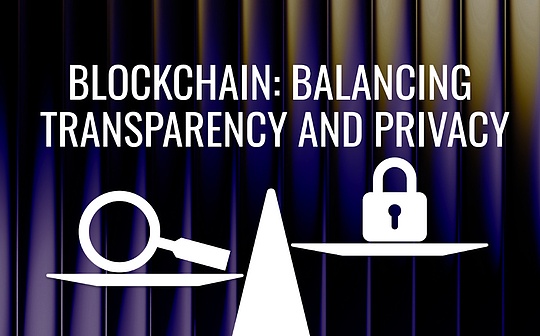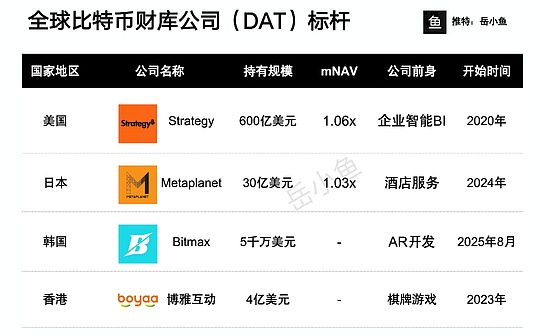
Author: Alex Urbellis Source: unchainedcrypto Translation: Shan Oppa, Bitchain Vision
Alexander Urbelis is an internationally renowned technical lawyer and cybersecurity expert, law professor at King’s College London, and general counsel and chief information security officer for Ethereum Domain Name Services (ENS).Alex bridges the gap between legal and technical expertise, and he is also the architect of an award-winning cyber threat intelligence platform designed to identify signs of upcoming cyberattacks, fake behaviors and other malicious activity.
In this article, he explores why Washington’s progress in the cryptocurrency sector has failed to advance the decentralized cause.He warned that it might be too late if this practice is not corrected.
The United States is becoming the crypto capital of CeFi.That’s why changes have to be made
Bo Hines has not made much progress in the field of decentralized crypto during his tenure at the White House.How can his successor, Patrick Witt, become a supporter of DeFi?
When Beau Hines stepped down as executive director of the President’s Digital Assets Advisory Committee, he claimed to have positioned “the United States as the crypto capital of the world” with the White House AI and crypto tsar David Sacks.However, his eight-month term (who transferred to a highly centralized crypto company for high-paying positions after his departure) has achieved major victories in the field of centralized crypto (CeFi).The greatest achievement is the “GENIUS Act》Law legislation, which paved the way for centralized stablecoin companies such as Circle.
This legislation is wrongly equated with support for decentralized finance (DeFi), but the opposite is true.Decentralization is being squeezed out.
With Hines’ deputy Patrick Witt taking over, Witt should demonstrate a deep understanding of the power of decentralization.Otherwise, the United States will face the risk of being trapped in the centralized finance (CeFi) structure.
The promise and power of cryptocurrencies cannot be separated from their decentralized principles.
How the United States supports CeFi at the expense of DeFi
The GENIUS Act only allows “licensed payment stablecoin issuers” to operate in the United States, which is a huge preference for centralized companies like Circle.Broadly speaking, a “licensed entity” means having federal approval from the U.S. Currency Regulatory Agency (a federal banking regulator) or equivalent state regulators, establishing anti-money laundering (AML) and bank confidentiality laws (BSA) compliance programs, and undergoing regular audits.
These limitations make it likeCircleThis release$73.55 billion USDThe company has obvious advantages.In fact, now it seems that the global leaderTether(ThatUSDTScale$171 billion) Must catch up in the United States.The company recentlyHiredAs a senior consultant, Hines will serve as a new companyTether USA₮CEO of the company, the company will apply to become the issuer under the GENIUS Act.
CeFi is too risky as a cornerstone of DeFi legislation
2022FTX crashShow the crypto industry how CeFi can be a breeding ground for bad actors.Sam Bankman-Fried and Alameda Research colluded secretly and illegally to abuse user funds.Ultimately, FTX was forced to file for bankruptcy because it did not have enough current assets to pay for withdrawals, resulting in billions of dollars in losses.Crucially, we cannot forget that this triggered a series of liquidity crises due to internal inter-company lending in CeFi, which also filed for bankruptcy by companies such as Voyager, Celsius and BlockFi.
Faced with market turmoil, likeUniswapandCurveSuch unmanaged DeFi protocols show strong resilience, and they continue to process transactions continuously as CeFi platforms on the edge of collapse quickly churn their funds, providing funds with necessary and secure exit channels.
Centralized companies have also faced similar problems.In 2018, TetherAccusedOffer collateral in its stablecoin to its sister exchange Bitfinex without informing investors or clients to fill loopholes in its balance sheet.The company finallyPayedA $18.5 million fine was settled with the New York State Attorney General on the charges.After that, in 2022, it was once worth$40 billionThe TerraUSD stablecoin/LUNA DeFi ecosystem collapsed because the carefully designed financial engineering and secret trading systems supporting the asset failed to maintain its peg.The project’s founder Do Kwon was in AugustadmitTwo counts of conspiracy and wire fraud faced in the United States are guilty of.EvenCircleIn 2023, tooFacingThe decoupling crisis, when its $3.3 billion USDC collateral was trapped in Silicon Valley banks.
Despite this history, CeFi is still a “comfortable” starting point for regulators, as its business structure tends to be similar to traditional financial companies.But this is not the cornerstone that DeFi legislation should be established.
How to protect decentralization
As Witt adapts to his new role, protecting decentralization is more important than ever.With the GENIUS Act becoming a past, the focus is turning to long-awaited market structure legislation that will rule on key issues such as the Securities and Exchange Commission or the Commodity Futures Trading Commission (CFTC) having regulatory priority.
The core of this debate is to determine how projects are viewed as decentralized.Most of the industry agrees that the 79-year-old Howey Test (a judicial framework for judging whether something is a securities) is outdated in the cryptocurrency field.But finding a suitable alternative is crucial, which allows innovation and ensures that real securities comply with the law.
recentpassThe U.S. House of RepresentativesCLARITY Act》 Draft (a market structure legislation) allows projectsSelf-certification as decentralized.While this may seem positive, it may confuse regulators and the industry about the definition of “decentralization”.A better way is to be in the billClarify the legislative language and focus on decentralization based on protocol control.Ideally, I would also like to see the bill support community governance of projects by recognizing token-based voting and decentralized autonomous organizations (DAOs)**, especially when major substantive changes to the agreement are proposed.
Given that under the new government, more and more projectsGive upDAO governance, this last point is particularly important.
Don’t be confused by empty words
As the fall is approaching, key decision makers in Washington, D.C. are saying the right things, but decentralization is still under attack.
On July 31, the SEC launched theEncryption Project“(Project Crypto), a new initiative aimed at rewriting outdated rules, modernizing digital asset legislation and bringing U.S. financial markets to the chain. SEC Chairman Paul Atkins called it the agency’s new “Polaris”, the agencyalwaysBeing tough on the crypto industry has made many people optimistic about the future of cryptocurrencies.
In line with this, Atkins advocates the implementation ofInnovation exemption”, this policy will exempt new technologies and business models from complying with tedious regulatory requirements that do not fully align with existing SEC rules and regulations.
In Chairman Atkins’ speech announcing the “crypto project,” words like “innovation” or “innovator” appeared more than 20 times.He even said: “SEC will not stand by and watch innovation grow overseas while our capital markets are stagnant.”
However, less than a week after Atkins announced the “crypto project”, the Privacy AgreementTornado CashRoman Storm, co-founderConvicted.He was found guilty of “knowingly committing his unlicensed remittance business,” according to the U.S. Department of Justice (DOJ) charges, which brought chills to the entire industry.
Why go toIs the heart essential?
The word “decentralization” is used frequently these days, but it is important to remember why it is crucial.Decentralization changes power dynamics: itPrevent a single entity or governmentto make rules, distort the market or confiscate funds.Decentralization is democratized: itPromote user control, transparency, accountability and resilience.In fact, the U.S. Constitution itself—with its checks and balances, decentralization among government departments, and deliberate protection of individual rights—is a sustained and quite successful example of decentralization.
Nominal support for cryptocurrencies, such as underwriting oneBitcoin Vault Company, does not make someone a advocate of decentralization.Putting Bitcoin into a centralized company and having people buy shares instead of owning Bitcoin itself makes decentralization of the chain meaningless.
oneBitcoin strategic reservesIt is not much better, it just exchanges ownership of a centralized company for custody of the central government.
If the industry continues to tolerate centralized structures that are guised by the promise of “decentralization of the future”, it has the potential to make this fatal mistake again.







